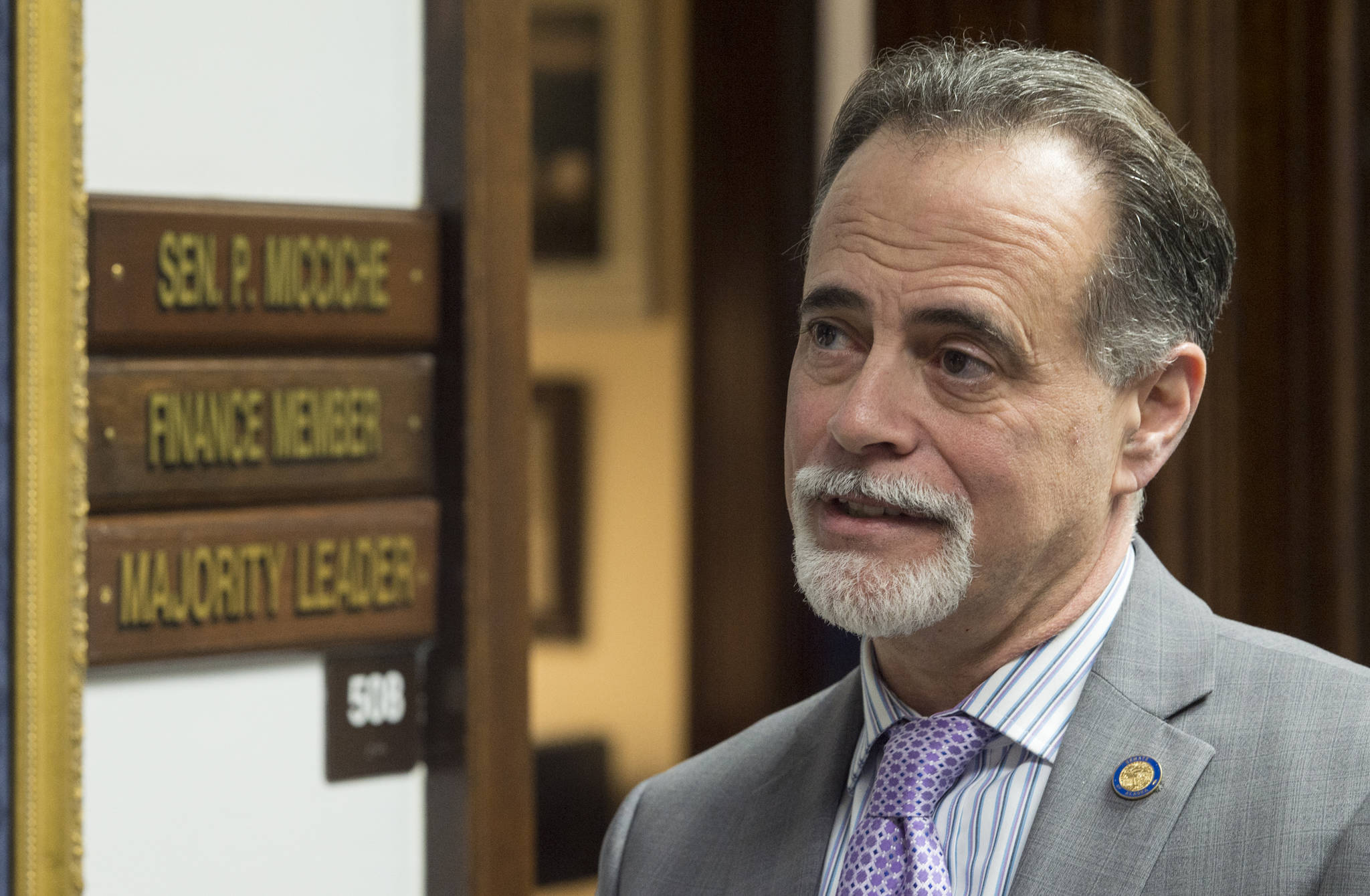A bill to ban smoking in bars and restaurants across Alaska has wide support in the Alaska Legislature, but the measure’s fate will again be decided by a single lawmaker.
Rep. Gabrielle LeDoux, R-Anchorage and chairwoman of the powerful House Rules Committee, has given no sign that she has changed her opposition to the ban. LeDoux’s opposition killed the same bill in the 2015-2016 Legislature, and while even more legislators are supporting the ban this session, LeDoux is in a key position that allows her to decide whether it comes up for a final vote.
“My general sense is that Rep. LeDoux is not very motivated to put it on the floor,” said Rep. Matt Claman, D-Anchorage and chairman of the House Judiciary Committee.
LeDoux, through a spokesman, declined to talk about her position.
The smoking ban, Senate Bill 63, is being advanced by Sen. Peter Micciche, R-Soldotna. If signed into law, it would restrict smoking in public places. The definition of smoking includes vaping but not marijuana, which is prohibited from public use under an existing law. Under Micciche’s guidance, the bill passed the Alaska Senate in a 15-5 vote last year.
Micciche said he believes the bill is a matter of public health and is about protecting employees in businesses that currently allow smoking.
“It’s clearly a public health issue. No one disagrees there will be health benefits,” he said.
Micciche told the Empire last year that he is a firm believer in the rights of individuals, but he has repeatedly said that “the right for me to swing my fist ends when my fist hits someone’s nose.”
He said he sees smoking as different from something like a tax on sugary sodas because no one forces an individual to drink a soda. In a smoky bar or restaurant, everyone breathes the smoke from a cigarette.
Micciche, speaking to the House Judiciary Committee on Monday afternoon, said he refers to the bill as the “take it outside” act, then went on to explain that his intent is not to ban smoking throughout Alaska.
“It’s complaint-driven. There’s not going to be a group of people from (environmental conservation) or (state health) that is going around trying to catch you because you’re trying to sneak a cigarette near the bathroom,” he told the committee.
Bethel was the first city in Alaska to ban smoking in public spaces such as bars and restaurants. Its ban passed in 1998, and in the two decades since that vote, other cities have followed suit. Anchorage bans smoking in public, and so does Juneau.
There are holdouts, too. Fairbanks hasn’t passed a ban, and neither has Kodiak, which has been a bastion of opposition to SB 63.
“Smoking bans violate private property rights,” said Carmen Lundy, representing the Kodiak chapter of the Alaska Cabaret, Hotel, Restaurant and Retailers Association.
Lundy was among more than a dozen people who offered public testimony on the bill Monday.
“Smoking is a personal choice, the same as choosing your own religion,” she said.
LeDoux, who represents a district in north Anchorage, is from Kodiak and still has close ties to the island city. According to the latest available financial disclosure forms, she still owns three properties there.
Last year, when the ban was approved by the Senate, it passed to the House. It sailed through the regional affairs committee and is expected to pass through Claman’s judiciary committee today.
Ordinarily, the next step is a vote of the full House. Twenty House lawmakers have signed up as cosponsors to SB 63, and the measure has broad bipartisan support beyond that. If approved by the House, it would go to the governor, who is likely to approve it.
Micciche said Tuesday that he expected a 21st House cosponsor to join the bill that day.
“Traditionally, when you have that level of support, a bill makes it to the floor,” Micciche said.
In order to reach the House floor, however, each bill has to be put on the schedule. Scheduling bills is the responsibility of the House Rules Committee, which is controlled by LeDoux. If she doesn’t schedule the bill, it doesn’t come up for a vote, and it can’t become law.
The Empire asked LeDoux last year whether she would schedule the bill for a vote.
“We’ll just have to see when it gets there,” she said at the time.
• Contact reporter James Brooks at james.k.brooks@juneauempire.com or call 523-2258.

